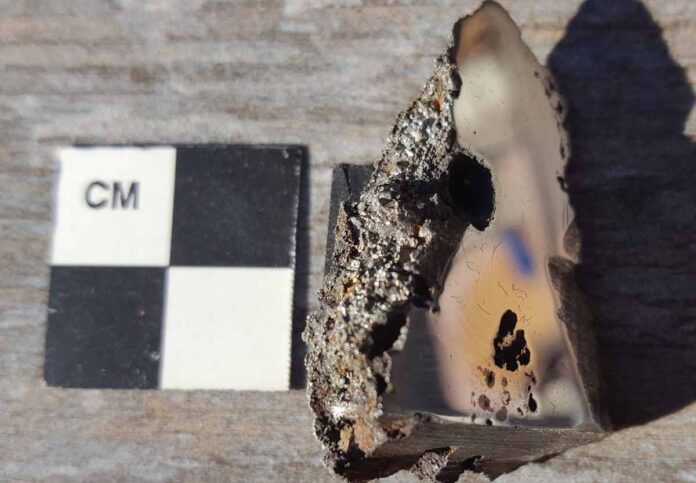Inside a massive meteorite in Somalia, two minerals are never seen before on Earth were discovered. They could hold vital information about how asteroids form.
The two new minerals were discovered in a single 2.5-ounce (70-gram) slice of the 16.5-tonne (15 metric tonnes) El Ali meteorite. It was discovered in 2020. The minerals elaliite and elkinstantonite were named after Lindy Elkins-Tanton, the managing director of the Arizona State University Interplanetary Initiative and principal investigator of NASA’s upcoming Psyche mission. It will send a probe to investigate the mineral-rich Psyche asteroid for evidence of how our solar system’s planets formed.
El Ali was identified as an Iron IAB complex meteorite. It is composed of meteoric iron flecked with tiny chunks of silicates. Details of the new minerals piqued the scientists’ interest while they were investigating the meteorite slice. They were able to quickly identify the minerals as newly recorded in nature. They compared them to versions of them that had previously been synthesized in a lab.
The researchers intend to look into the meteorites further to learn more about how their parent asteroid formed. “That’s my expertise,” Herd said. “How you tease out the geologic processes and geologic history of the asteroid this rock was once part of.” “I never imagined I’d be involved in describing brand new minerals simply by working on a meteorite.”
The team is also investigating mineral applications in material science.
However, future scientific discoveries from the El Ali meteorite may be jeopardized. The meteorite has been relocated to China in search of a buyer. It may limit researchers’ access to the space rock for investigation.

